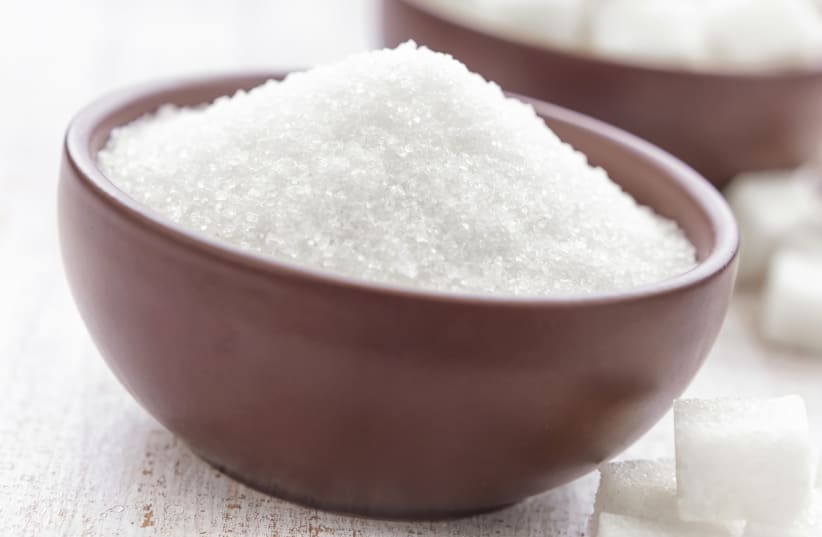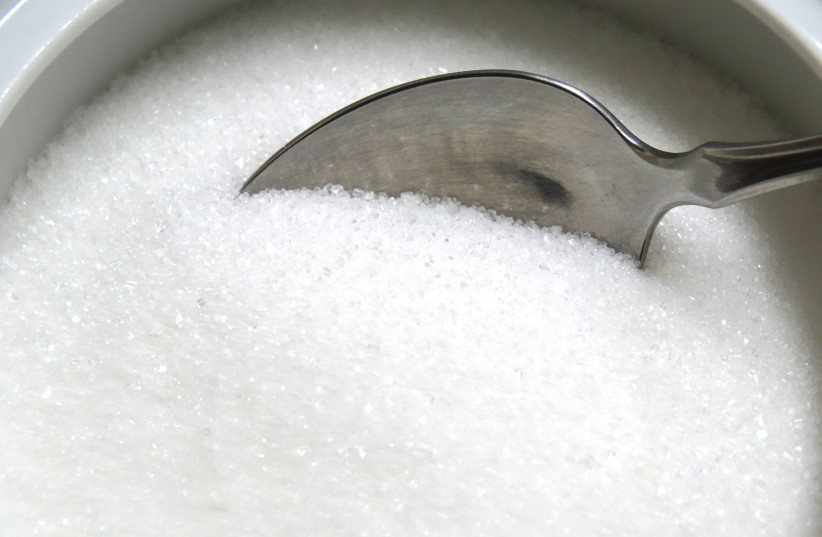Artificial sweeteners are regarded as a godsend to diabetics and people who want to lose weight but have a sweet tooth. These sugar substitutes, also known as non-nutritive sweeteners, include saccharin, sucralose, aspartame and stevia (made from the leaves of a green plant).
But a controlled trial conducted at the Weizmann Institute of Science in Rehovot, just published in the journal Cell, suggests that contrary to previous belief, such sweeteners are not inert. They have an effect on the human body, and some can alter human consumers’ microbiomes – the trillions of microbes that live in our gut – in a way that can change a person’s blood sugar levels and alter glucose metabolism. Interestingly, the effects these sweeteners produce vary greatly among different people.
Changes in sugar metabolism examined
In 2014, a Weizmann study in mice showed that some non-nutritive sweeteners might actually be contributing to changes in sugar metabolism that they are meant to prevent.
In the new trial, a team of researchers headed by Prof. Eran Elinav of Weizmann’s systems immunology department screened nearly 1,400 potential participants, selecting 120 who were found to strictly avoid any artificially sweetened foods or drinks. The volunteers were then divided into six groups.
Participants in four of the groups were handed sachets of common non-nutritive sweeteners that contained amounts that were lower than the acceptable daily intake, one sweetener per group – saccharin, sucralose, aspartame or stevia. The two other groups served as controls.
The research was led by Dr. Jotham Suez, a former graduate student of Elinav’s and now principal investigator at the Johns Hopkins University School of Medicine in Baltimore, Maryland; and Yotam Cohen, a graduate student in Elinav’s lab. It was conducted in collaboration with Prof. Eran Segal of Weizmann’s computer science and applied mathematics and molecular cell biology departments.
The researchers found that after two weeks of consuming all four sweeteners, the composition and function of the microbiome and of the small molecules the gut microbes secrete into people’s blood changed – each sweetener in its own way. They also found that two of the sweeteners, saccharin and sucralose, significantly altered glucose tolerance – proper glucose metabolism – in the participants Such alterations, in turn, may contribute to metabolic disease. In contrast, no changes in either the microbiome or glucose tolerance were found in the two control groups.
The changes induced by the sweeteners in the gut microbes were closely correlated with the alterations in glucose tolerance. “These findings reinforce the view of the microbiome as a hub that integrates the signals coming from the human body’s own systems and from external factors such as the food we eat, the medications we take, our lifestyle and physical surroundings,” noted Elinav.
To check whether changes in the microbiome were indeed responsible for impaired glucose tolerance, the researchers transplanted gut microbes from more than 40 trial participants into groups of germ-free mice that had never consumed non-nutritive sweeteners. In each trial group, the transplants had been collected from several “top responders” (trial participants featuring the biggest changes in glucose tolerance) and several “bottom responders” (those featuring the least changes in glucose tolerance).
Strikingly, recipient mice showed patterns of glucose tolerance that largely reflected those of the human donors. Mice that received microbiomes from the “top responders” had the most pronounced changes in glucose tolerance, compared to mouse recipients of microbiomes from “bottom responders” and from human controls.
IN FOLLOW-UP EXPERIMENTS, the researchers determined how the different sweeteners affected the abundance of specific species of gut bacteria, their function and the small molecules they secrete into the bloodstream.
“Our trial has shown that non-nutritive sweeteners may impair glucose responses by altering our microbiome, and they do so in a highly personalized manner, that is, by affecting each person in a unique way,” said Elinav, who declines to advise diabetics whether or not to use artificial sweeteners. “In fact, this variability was to be expected, because of the unique composition of each person’s microbiome.”
“We assessed saccharin, sucralose, aspartame and stevia, all provided in commercial sachets. Since these all contain small amounts (5g) of ‘filler’ glucose, we’ve used two human control groups – those taking only the small amounts of glucose and those not taking anything. We therefore did not compare glucose to sweeteners,” Elinav told The Jerusalem Post.
The artificial sweeteners, he continued, may potentially mediate changes in people, possibly in a highly personalized manner stemming from different people’s unique gut microbe populations.
“Therefore, the long-term clinical implications of our findings merit future randomized, interventional and non-industry sponsored studies. Until then, we recommend practicing a healthy caution, especially of at-risk populations. It is important to add that sugar consumption still constitutes a very bad and well-proven health risk for obesity, diabetes and their health implications – and our findings do not support or promote the consumption of sugar in any form or shape.
“In the meantime, it’s important to stress that our findings do not imply in any way that sugar consumption, shown to be deleterious to human health in many studies, is superior to non-nutritive sweeteners. We strongly believe that sugar consumption should be minimized and avoided as much as possible. Among all the options, unsweetened water seems to be the safest and best option.”
Meanwhile, the World Health Organization (WHO) recently stated that artificial sweeteners should not be used for weight control or for reducing the risk of noncommunicable diseases.
“This recommendation was based on a systematic review that assessed the health effects of higher compared to lower intake of non-sugar sweeteners and found no evidence of long-term benefit on measures of body fatness in adults or children and potential undesirable effects from long-term use in the form of increased risk of type-2 diabetes, cardiovascular diseases, and mortality in adults. Limited evidence suggests potential undesirable effects in the form of increased risk of pre-term birth if taken during pregnancy.”

